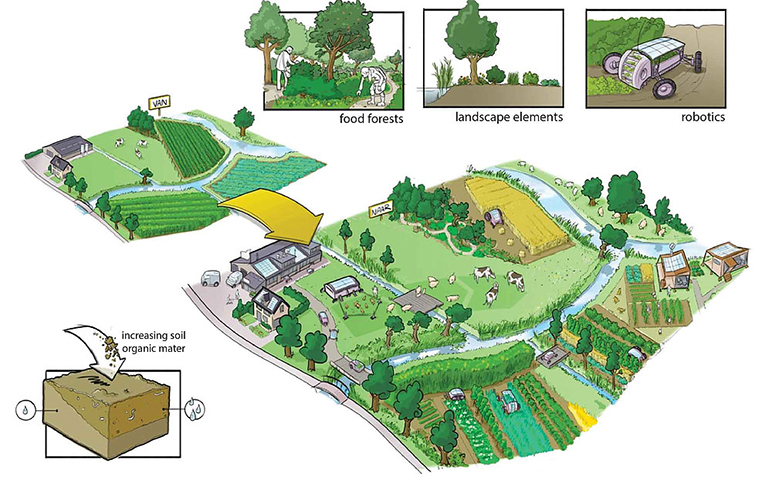https://genomicgastronomy.com/blog/
A few organisations work around this topic and we had the chance to exchange with Teun Spek, who works for the Veluwe Waterboard, responsible for water management and groundwater system in this area. Teun was born in the Veluwe and for the last 8 years, he has been trying to understand the Veluwe by taking actual measurements in the fields rather than relying only on predictive models.
According to Teum the market for biological products is slow-growing in the Netherlands, and so there is little financial incentive for farmers who may not be able to sell their food at the higher price which is required as they move away from chemical inputs. Additionally, food forest projects tend to be very small and successful ones connect up with fine dining restaurants to have a stable income. It sounded like many flavours of non-industrial farming need to supplement their income with education, health or other initiatives in order to stay in business.

